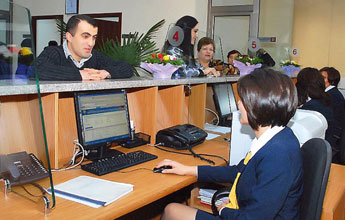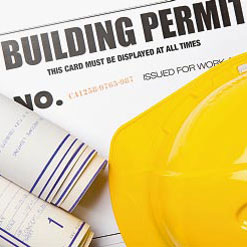Permits and Licenses
The law “On Licensing” provides for two types of licenses: Simple and compound (automatic and non-automatic). The simple license is issued within three days upon submission of application documents and does not require the approval of the licensing commission. Compound licenses are issued within 30 days after submission of documents, and may only be issued by a licensing commission. A list of activities subject to licensing is provided in Chapter VII of the licensing law. Licenses are issued by a number of government agencies.Currently only 96 types of activities are subject to licensing, 12 of which are subject to simple licensing, and the other 4 to compound licensing procedure. Licenses can now be obtained on line through a new electronic system at (www.e-gov.am/licenses).
Armenia has carried out signifcant reforms to simplify requirements and procedures to obtain permits. Among the most important benefciaries of the reform is the construction industry, where issuance of permits was streamlined by simplifying procedures, and costs to obtain them signifcantly reduced. Currently construction permits are provided within 27 days, as opposed to the 137 days required before simplifcation reforms were introduced.
Other State Regulations
 In addition to the business start-up laws and regulations described elsewhere in this chapter, the following legal acts also apply to establishing the business in Armenia.
In addition to the business start-up laws and regulations described elsewhere in this chapter, the following legal acts also apply to establishing the business in Armenia.
EMPLOYMENT
The principal legislation governing labour in Armenia is the Labour Code of the Republic of Armenia. The Code governs employment agreements, collective agreements, length of the working day, rest time, duration of vacations, calculation of salaries and other payments to employees, termination of employment relations, duration and payment for special leave such as maternity leave and study leave, and restrictions and notifcation for termination of employees.
The freedom to choose a profession is guaranteed, as well as the right to working conditions that are in compliance with safety and hygiene requirements. Forced labour is prohibited.The legislation stipulates no limitations on the composition of the labour force employed by either Armenian or foreign companies.
The Labour Code corresponds to international criteria and assures protection of employer and employee rights. In addition to the Code, labour relationships are governed by other acts, laws and regulations. Armenia is a full member of the International Labour Organization (ILO).
INTELLECTUAL PROPERTY
The general objective of Armenia’s intellectual property (IP) rights policy regime is to promote innovation and IP commercialization, and to provide effective protection of proprietary rights to IP owners.
Granting of patents and protection of intellectual property rights in Armenia are regulated by the following major pieces of legislation:
- Civil Code of the Republic of Armenia
- Law “On Copyrights and Related Rights”. This law provides for legal protection of literary works, musical works, paintings, flms, software, and other intellectual property rights. It also provides legal protection of the rights of performers, producers of sound recordings, and broadcasting organizations.
- Law “On Trademarks”. This law defnes the procedure for registering and protecting service marks, geographical indications and trademarks.
- Law “On Trade Names”. This law regulates the registration, legal protection and use of trade names of legal entities. In addition to these statutes, the protection of intellectual property is also regulated by the law “On Protection of Economic Competition”, the law “On Utility Models and Industrial Designs”, the law “On the Legal Protection of Integrated Circuit Topography” and the law “On Geographical Indications”. Armenia is a member of the World Intellectual Property Organization (WIPO) and has signed a number of international agreements on intellectual property rights. Among the key legal instruments for the protection of copyright and related rights are international conventions which Armenia has ratifed. These include the Berne Convention for the Protection of Literary and Artistic Works; the Rome Convention for the Protection of Performers, Producers of Phonograms and Broadcasting Organizations; the WIPO Copyright Treaty, and the WIPO Performances and Phonograms Treaty.

INSPECTIONS
Inspections in Armenia are carried out by several state bodies according to the law “On Organization and Implementation of Inspections in the Republic of Armenia”. Inspections are conducted to supervise compliance with relevant regulations by entrepreneurs, and encourage them to operate generally in accordance with the legislative framework.
The system of inspections is being signifcantly improved in accordance with ongoing reforms started by the Government in 2009. In particular, a risk-based inspection system has been introduced, which schedules inspections based on the assessed risk level of enterprises.
- In general three risk groups have been formulated for companies. Only 20% of enterprises are included in the high-risk group, and 70% of the total number of annual inspections are carried out in high-risk companies. Only 5% of inspections are carried out in low-risk companies.
- Inspection bodies are obliged to publish annual inspection programs, as well as reports on inspections and examinations that have been carried out. These bodies carry out inspections via the utilization of checklists.
- The frequency of inspections of the same company by the same state body is as follows: for companies in the high risk group: once per year; for those in the middle risk group: once every three years; and of those in the low risk group: once every fve years. Inspection bodies that do not have a risk-based inspection system and developed, approved and published check-lists, may carry out inspections in the same company only once every fve years.
































 Permits and Licenses, Other State Regulations
Permits and Licenses, Other State Regulations